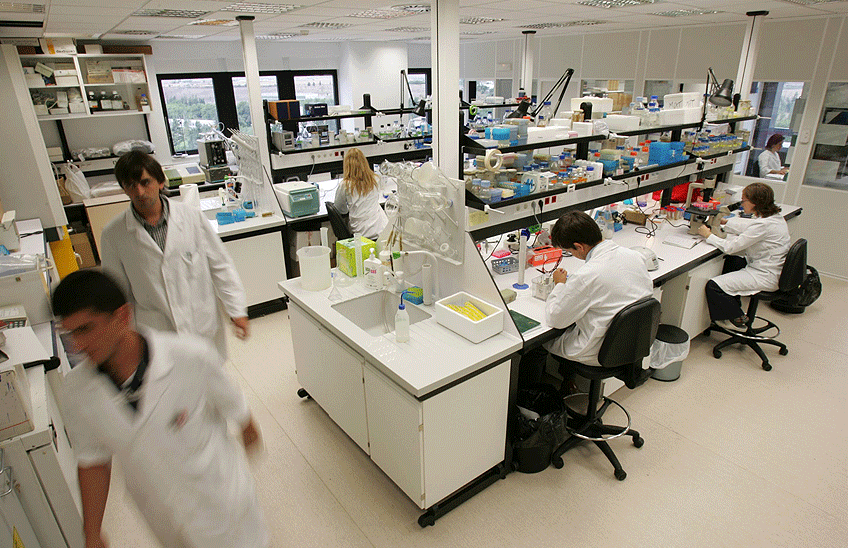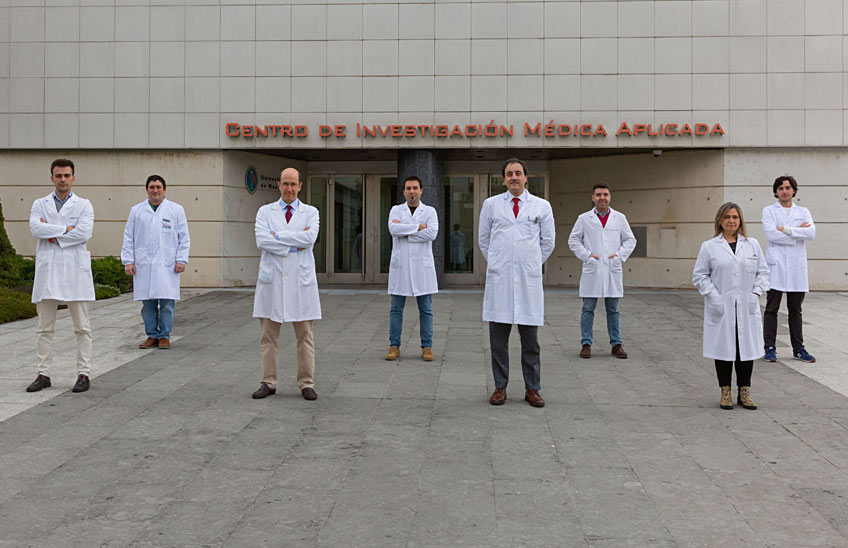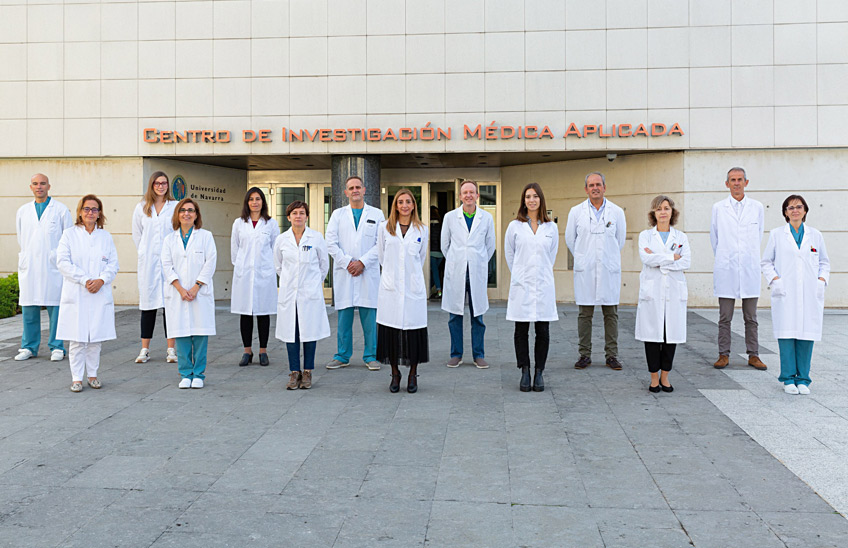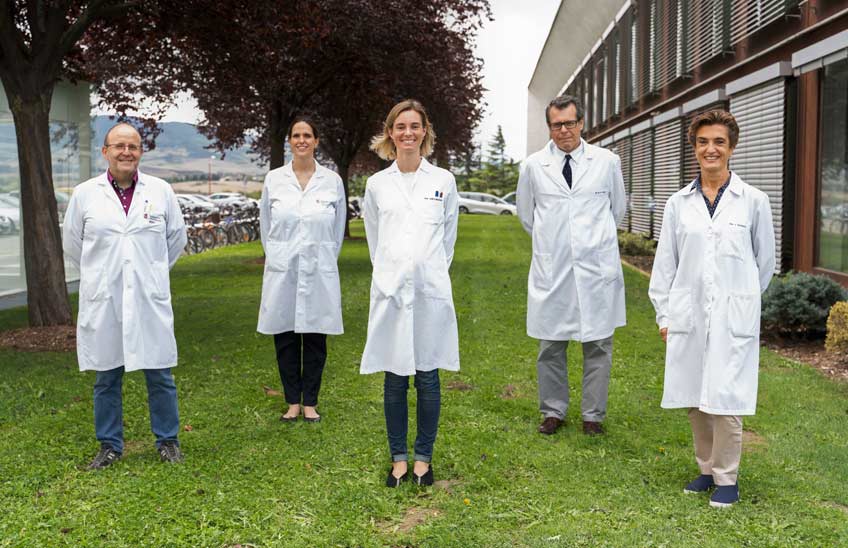New genetic and pharmacological strategies proposed to tackle lung cancer
A research of the University of Navarra identifies new mechanisms of resistance to available treatments.
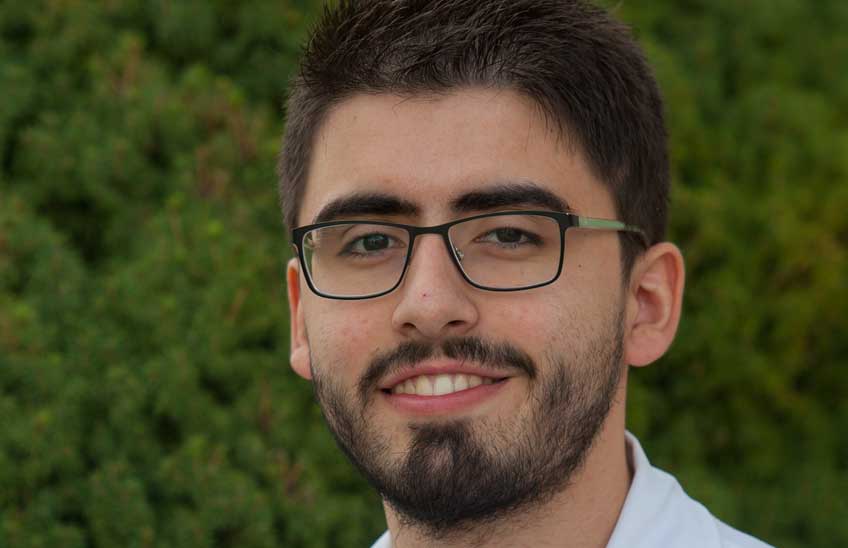
FotoManuel Castells/<br>Francisco Expósito
01 | 03 | 2021
A study by the University of Navarra proposes new genetic and pharmacological strategies to sensitize lung cancer cells to different therapies. Francisco Expósito, 27, from La Rioja, has carried out his doctoral thesis on resistance to lung cancer treatments and has formulated therapeutic proposals for this type of tumor subject .
"Our work de research has focused on finding new strategies to increase the therapeutic efficacy of chemotherapy and immunotherapy in lung cancer," notes the young researcher.
Dr. Expósito's study, aimed at understanding the phenomena of resistance to lung cancer treatments, has been approached from three perspectives. On the one hand, the search for molecules and their inhibition in order to seek greater effectiveness of chemotherapy against these tumors. "We found that when we genetically increase the amount of the TMPRSS4 protein in lung cancer cells, multi-organ metastasis occurs. However, when we inhibit it, we show that the cells lose much of their aggressiveness and become more sensitive against virtually any chemotherapy subject ."
The second line of the study evaluated the simultaneous inhibition of two proteins (DNMT1 and G9a) capable of controlling the expression of genes that could facilitate the development of tumors. "We were able to inhibit their activity with the drug CM-272. This drug, developed at Cima, has already been shown to be effective in preclinical models of hematological tumors, bladder cancer and hepatocarcinoma."
The third axis of this study focuses on the generation of four genetic models of resistance to immunotherapy using lung cancer cells of murine origin. "The generation of these models is something really novel since there are patients treated with immunotherapy who either do not respond initially or end up generating secondary resistance. There are still very few tools available to study the mechanisms underlying these therapeutic failures, so these models could be very useful".
Although the research carried out by Dr. Expósito is at an early stage -research performed in cells and in preclinical murine models - the results, according to researcher, are interesting and useful for developing new treatments for the future. In this sense, the search for specific pharmacological inhibitors against the TMPRSS4 protein, and the search for biomarkers that allow the prediction of patients who can benefit from these therapies under study, is the natural continuation that this research should have, according to Expósito.
In 2020, according to the World Health Organization, lung cancer is the subject most diagnosed neoplasm in the world (11.4% of all cancer diagnoses), and the subject most lethal (18% of all cancer deaths worldwide are due to this tumor subject ).
Francisco Expósito is graduate in Biology and Master's Degree in research Biomedicine by the School of Sciences of the University of Navarra and has developed his research in the Solid Tumors program of Cima. This group of research belongs to the CIBER of Cancer(CIBERONC) and the study has been carried out in the framework of the high school of research Sanitaria de Navarra(IdiSNA).
reference letter bibliography
Expósito F, Villalba M, Redrado M, de Aberasturi AL, Cirauqui C, Redin E, Guruceaga E, de Andrea C, Vicent S, Ajona D, Montuenga LM, Pio R, Calvo A. Targeting of TMPRSS4 sensitizes lung cancer cells to chemotherapy by impairing the proliferation machinery. Cancer Lett. 2019 Jul 1; 453:21-33. doi: 10.1016/j.canlet.2019.03.013.

